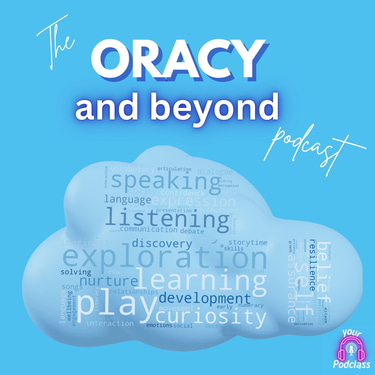Oracy and beyond is created and hosted by Al Booth - Broadcaster, Conference Host and Communication Specialist supporting schools and trusts to find and share their confident, authentic voices.
Why Oracy And Beyond?
About The Host
Hello, I'm Al Booth. I am a broadcaster, an event host, and a podcast producer.
I am also a former unconfident child/teen/young adult.
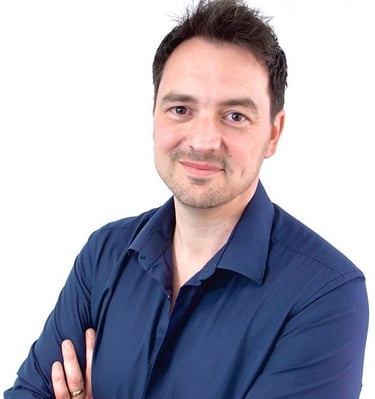

I wanted to be a radio presenter ever since I was 8 years old and listened to Steve Wright in the Afternoon on Radio 1 when Mum would drive me and my sister home after school.
He was brilliant. He'd do silly things, he played brilliant music, and he got to talk to people and make them feel good. What a job to have.
The thing is, for whatever reason, I wasn't a terribly confident child in the wider world.
(My Mum recently told my fiancée a story from around the same time about how my teacher had told her I wouldn't read out loud in class because I just wasn't confident enough.)
I don't recall not reading out loud in class. Although it does make sense. And it may be linked to this school memory...
The lesson was maths and Mrs Jeffries was the teacher. There was a maths problem which we had to work it out in our books and then approach her with the answer.
Would Oracy have helped? I think it probably would have...
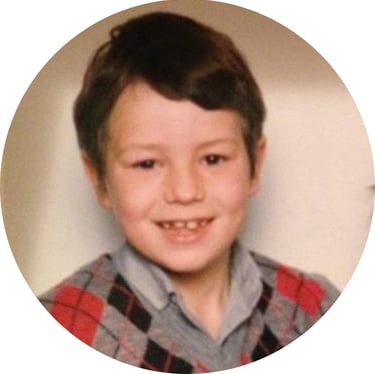

I went up to Mrs Jeffries several times, who peered at me from behind her tortoiseshell glasses, nestled under a nest of wiry greying ginger hair and, with a swift flick of her pen, left a red mark in my book as vivid as her crimson cardigan and as damning as the "tut" that accompanied her belittling swipe.
And that happened time-and-time again until I'd got the answer right. (I never did.)
In secondary school my reports were very similar to my primary school reports:
"Alistair needs to learn to ask questions in class."
I wanted to.
But that lack of confidence, the feeling that I would say something and be belittled for it, the worry that my peers would laugh...
In 6th Form I wrote our form assemblies but I would never present them. I wanted to but... (see above)
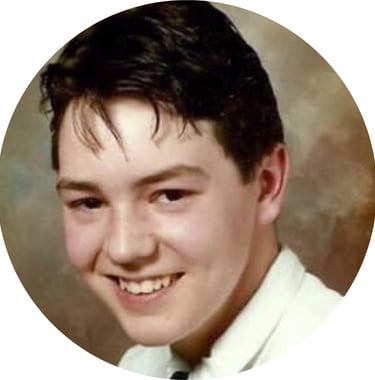

Let's fast forward otherwise you'll be here all day...
My break into radio finally came after I sent a fax - yes, welcome to a true 90s tale - to the local radio station's afternoon presenter.
I eventually go my first proper radio job in 1998 at the age of 21 when I was asked to become his producer. But even then, in a world of very lovely yet very gregarious personalities, I struggled to even speak on nights out or in the office.
Inside I felt like I wasn't ever saying anything. That feeling snowballed in my mind, and my social confidence slipped further.
However, everyone was lovely and encouraging. And steadily I began to share more and more ideas.
Finally. The part where I explain why Oracy matters to me.
I continued to produce at different stations and the moves around the country, and the encouragement of others as I shared my ideas, finally led to me presenting my first solo radio show.
This was in 2005. 7 years after I landed my first job in radio and 20 years after I'd first heard that Steve Wright show in my Mum's car.
It had taken me all that time to have the confidence to ask if I could do the thing I had dreamed of since I was a child.
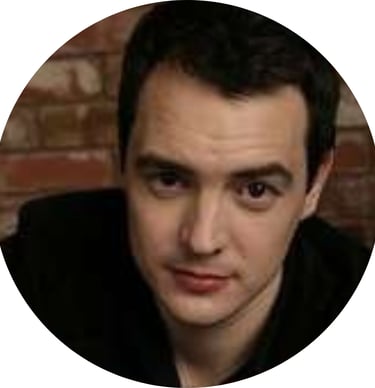

I knew nothing about oracy until spring 2025.
A year before I'd been chatting with my then 6-year-old son at bedtime and he'd told me his class were making a "pretend podcast".
By this stage in my career, thanks to some BBC freelancing and a sudden pandemic, I'd added Podcast Producer to my Broadcaster title.
And so I contacted my son's teacher and asked if I could take my recording equipment in to make an actual podcast episode with the class.
I loved it. I loved being able to use my experiences of being a shy, unconfident child-turned-confident presenter to help each child speak on the microphone.
That's when I decided I wanted to take Your Podclass workshops in schools.
This is also the time that people I knew in education said: "You should focus it on oracy."
(It was also the same week that I got my ADHD Combined diagnosis. It was quite the week!)
And that led me down a rabbit hole of finding out all about oracy. And all of a sudden so much became clear to me about that shy, unconfident child/teenager/young adult.
This is why Oracy And Beyond exists.
As an experienced broadcaster and podcast producer, and that former shy child, the obvious thing for me was to create a podcast where I can speak to equally passionate people about oracy, with the added bonus that they'd be professionals.
Oracy And Beyond is a platform to discuss oracy in the classroom and beyond. It's a place to reflect on how oracy would have helped them in their schooldays, and to share examples of how it has helped young people they've known.
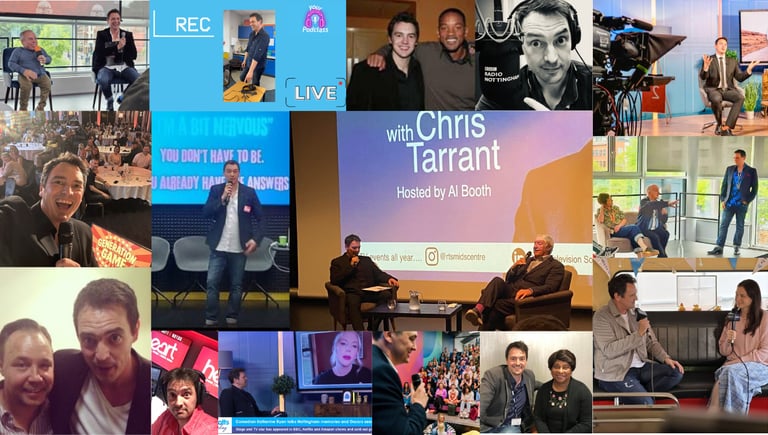

It is great to hear how many people are passionate about bringing oracy to the forefront of education so that it sits next to written work.
If we can let children know it's okay to share their ideas, to encourage them to ask questions and to listen to others responses, that will give them such confidence from a young age.
I am pretty sure that, had oracy been a thing in my schooldays, I wouldn't have waited 20 years to finally become the radio presenter I wanted to be when I was 8.
Things have worked out rather well for me. I've been very lucky to have the career I've had so far.
But if you'd have told that 8-year-old boy in the back seat of his Mum's orange Fiat that he'd be confident hosting stages, speaking to audiences, interviewing famous names, or even talking in-front of classrooms of children, I don't think he'd have believed you.
But that confidence is something everybody deserves to have from an early age.
And that's why oracy matters so much to me, and to my guests on Oracy And Beyond.
Because Oracy is Equity.
Your Podclass
"Oracy And Beyond" is hosted and produced by broadcaster and event & panel host Al Booth.
To discuss opportunities, please email al@albooth.co.uk
Contact
Growth
07947 804785
© Oracy And Beyond 2026. All rights reserved.
